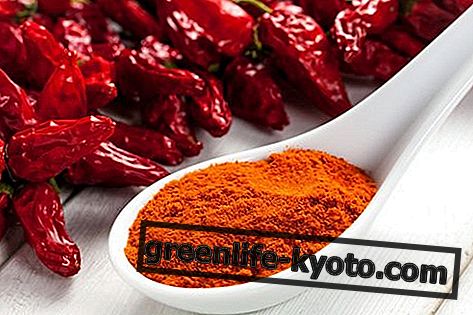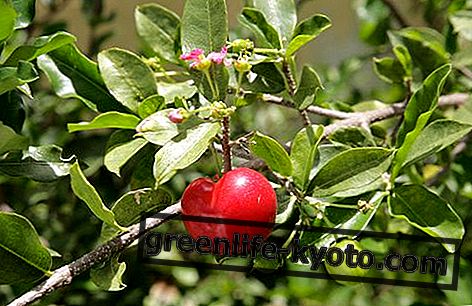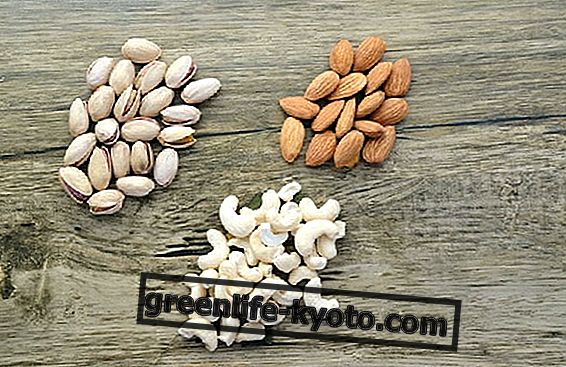
The tulsi plant is also known as sacred or holy basil because of its countless beneficial properties for our body.
Its scientific name is Ocinum sanctum or even Ocimum tenuiflorum and belongs to the Labiateae family such as basil and mint.
It is an aromatic herb rich in active ingredients so that it is nicknamed " the queen of herbs " and since ancient times in India it has been used in traditional Ayurvedic medicine.
Tulsi is an annual herbaceous plant that develops in a bushy form up to a meter in height. Its leaves are green in color but may in some varieties fade towards purple, while the shape is ovoid similar to basil but with a thicker leaf texture and are hairy.
The scent of the leaves is reminiscent of lemon, liquorice and even mint. Depending on the variety, the flowers and the appearance of the plant vary slightly.
There are in fact three varieties of tulsi : the first with light purple flowers and purplish green leaves called Krisna tulsi, the second has shiny green leaves without purple veins and is called Ram tulsi and the third has green leaves with white flowers called Vana tulsi.
These names derive from the Hindu divinities precisely because the homeland of origin of tulsi is India . However, this plant generally grows in sub-tropical areas such as Asia and Africa although, as we have said, India is its cradle of origin.
Read also Strategies and natural remedies against stress >>
Properties of tulsi
The tulsi plant contains vitamins A, C and K in addition to mineral salts such as calcium, potassium and magnesium. It is also rich in active ingredients such as essential oils and antioxidants that give it anti-stress, antibacterial, anti-inflammatory, antioxidant, expectorant, cardiotonic and digestive properties.
Tulsi, natural anti-stress
The main activity of tulsi is to be an adaptogen remedy that helps to better cope with both physical and psycho-emotional stress.
Adattogena means precisely that this herb is able to help the body adapt to the stressors coming from the outside.
In particular taking the infusion of tulsi leaves helps against states of anxiety, insomnia and significantly reduces migraine. Its action in this case is linked to a slightly sedative effect that calms and relaxes the soul and body of the person who drinks the herbal tea.
We can say that tulsi is able to harmonize the various activities and functions of the body by stimulating a relaxation that helps to better cope with stress.
Tulsi to strengthen the immune system
Tulsi is excellent against colds and is able to counteract the onset of colds, coughs and fever or in any case helps their resolution.
The presence of essential oils also helps strengthen the immune system and, thanks to its antibacterial, antifungal, anti-inflammatory and expectorant properties, tulsi becomes an excellent remedy for seasonal diseases.
Furthermore we can consider tulsi as a natural antibiotic capable of purifying and disinfecting the body as well as removing and protecting from germs, viruses and bacteria.
Tulsi for purifies the blood and skin
Tulsi has a purifying action on the blood and is also capable of regulating sugars and bad cholesterol in the bloodstream. Therefore it becomes a good remedy in case of diabetes or hypercholesterolemia problems.
The tulsi herbal tea can also be used to gargle to heal the mouth and keep a good breath. Furthermore, the use of rinses based on this herbal tea can combat problems with the buccal apparatus such as cavities, tartar and plaques.
Finally, the tulsi wraps help the healing of conjunctivitis and, if used on the skin, are used to eliminate acne and to soothe in case of insect bites.
Tulsi to support the digestive system and the heart
In cases of digestive problems, thanks to the presence of essential oils, tulsi is also a valid digestive and carminative. In fact it alleviates the problems of bad digestion and facilitates the elimination of intestinal gases. Therefore excellent in cases of abdominal pain, cramps and flatulence resulting from poor digestion.
Moreover, tulsi is a cardiotonic and helps reduce blood pressure. These properties obviously act positively on the whole cardiovascular system.
Finally, thanks to the conspicuous presence of vitamin K, it also has the property of avoiding blood clotting, thus favoring a blood flow, protecting the heart from fatigue.
Vitamin K is also used for the mineralization of the skeletal system and serves to preserve memory and keep our brains active .
Anti-aging tulsi
Its antioxidant properties see it indicated to counteract free radicals and therefore protect against aging damage.
In fact it is also considered a longevity plant for this property of slowing down the degenerative process of cells and tissues.
In particular, tulsi has the ability to help the body absorb oxygen and this has beneficial effects on all levels of our body's physiological processes.
For example, it also strengthens the memory and improves the resistance of the whole body.
Finally it lowers the risk of contracting tumors and in particular those that involve the lungs, the liver, the skin and the oral cavity.













